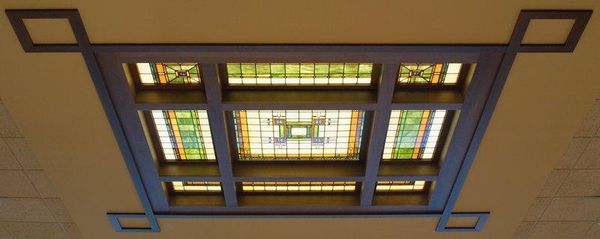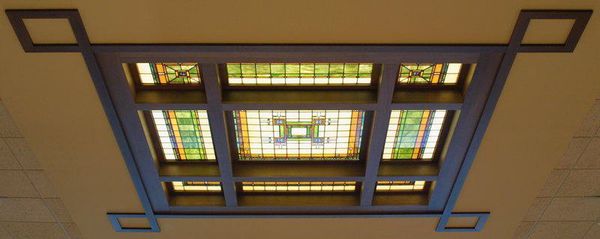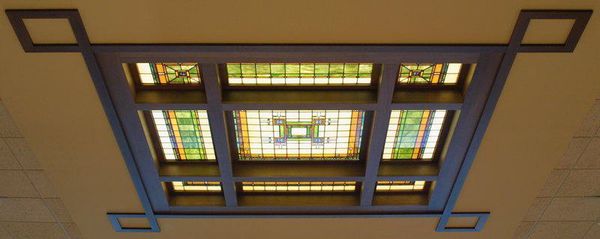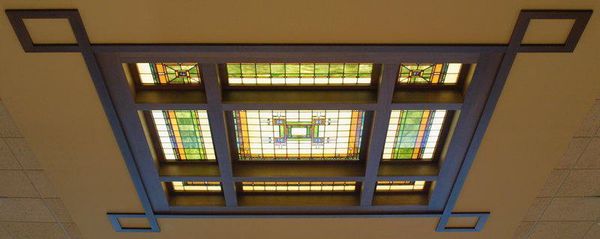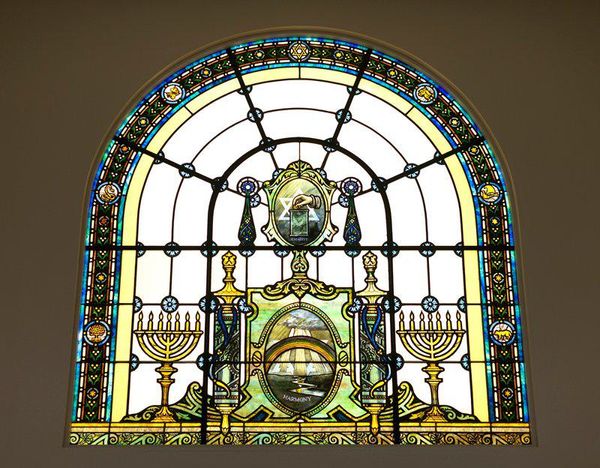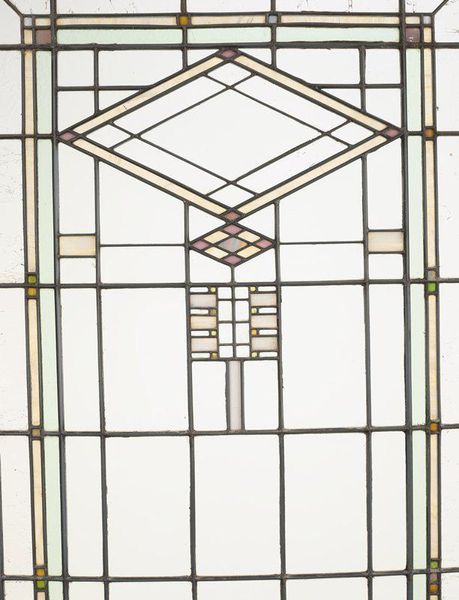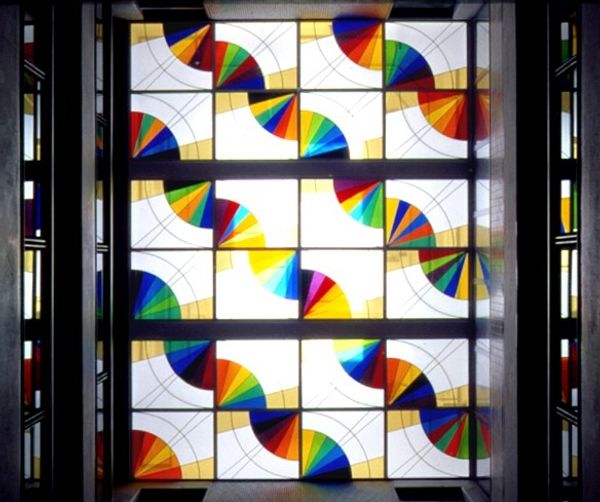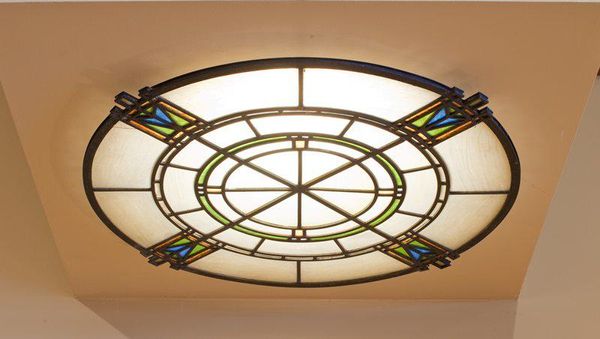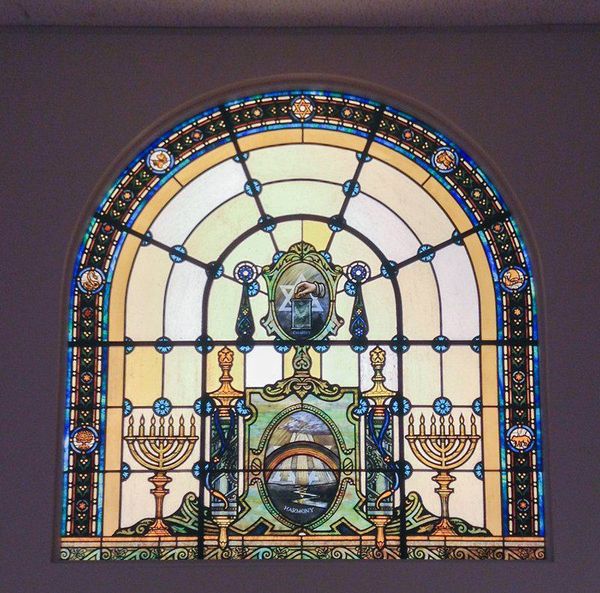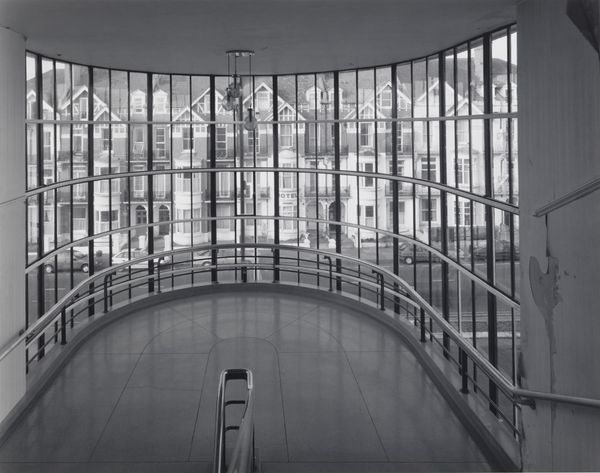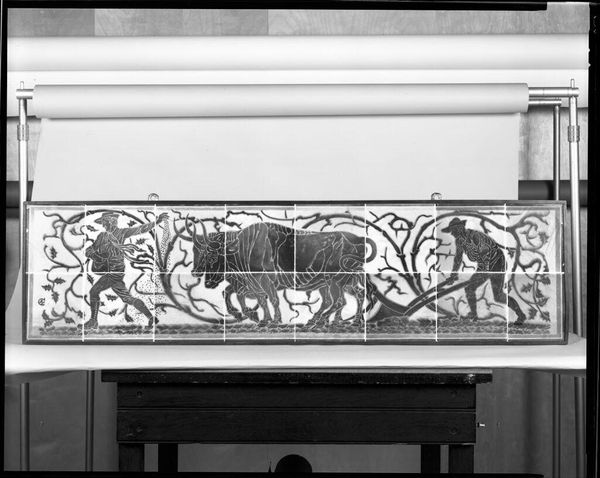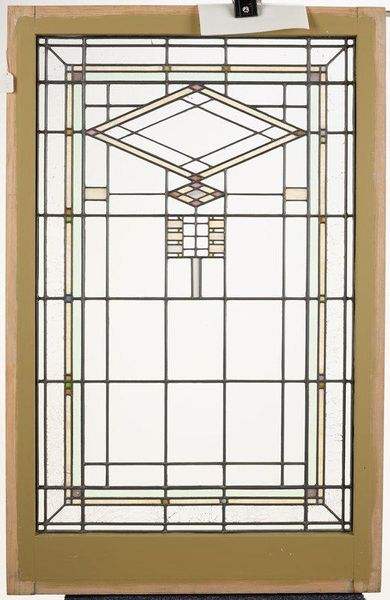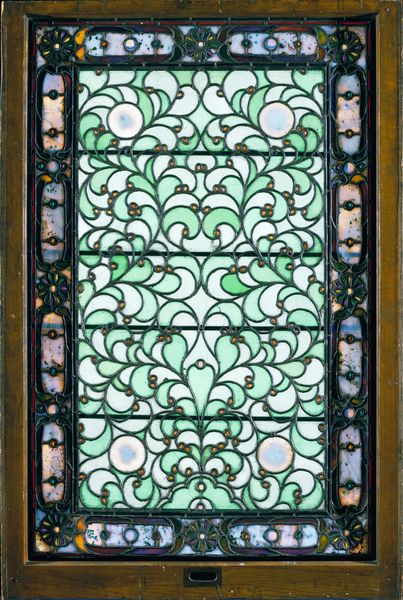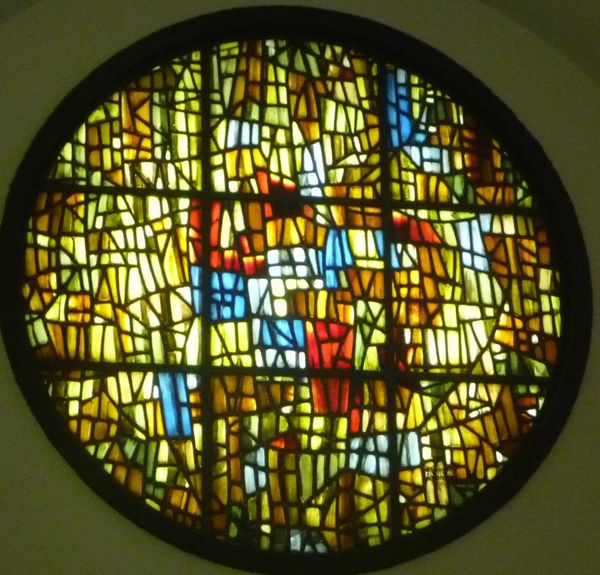
glass, architecture
#
interior architecture
#
architectural photography
#
historic architecture
#
traditional architecture
#
glass
#
industrial style architectural design
#
architecture
#
showhome propping
#
united-states
#
architectural
#
architecture
#
historical building
#
architectural design photography
Dimensions: 18 x 42 x 1/4in. (45.7 x 106.7 x 0.6cm)
Copyright: No Copyright - United States
Curator: Here we have a skylight panel, one of a set of six designed in 1913 by William Gray Purcell. It’s currently housed here at the Minneapolis Institute of Art. The panel features a geometric grid holding stained glass pieces. Editor: The light streaming through those glass panes makes the design feel less rigid, more airy, like a geometric garden overhead. It has a beautiful contemplative quality, despite the strong lines. Curator: Yes, Purcell was quite involved in the Prairie School movement. We see a conscious rejection of ornamentation here in favor of clean lines, the structure almost reminiscent of Japanese design. Editor: Precisely! That emphasis on horizontality, the simplification of forms, echoes that sensibility. Squares within squares… the visual echoes create this sense of serene expansion. I see both a modern sensibility but ancient building forms represented in this grid pattern. Curator: The arrangement and the geometric nature align with the Prairie School's social goals too—democratizing art and design by creating beautiful yet functional everyday objects available for all. It spoke of a social utopian ideal. Editor: It's a quiet revolution in design. The subtle colors—the greens, yellows, earth tones, feels organically connected to the landscape beyond the structure, right? How light and color becomes encoded is striking. Curator: Indeed. Purcell's skylight encapsulates the Prairie School's aspiration: creating an integrated art, where aesthetics and ethical intentions unite, enriching ordinary life, connecting humans with the world around us. Editor: Well, looking up at this design does exactly that, even now, after all these years. It elevates your gaze—invites the sublime—through just the simplest of shapes, doesn't it? What could be better? Curator: It is a powerful legacy. Makes you want to spend more time looking up and considering, what new perspectives do these age-old designs invite us to discover?
